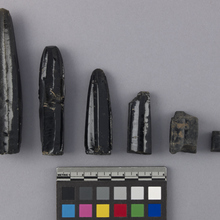
Core
MOA: University of British Columbia
3157/157 a-f
Six pieces of obsidian cores of varying shapes and sizes. Each core has prismatic blade scars running lengthwise along the side of the core. a-d) Four large cores, mostly complete. e-f) Two smaller fragments of cores.
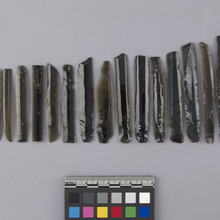
Flake
MOA: University of British Columbia
3157/156 a-q
Group of 17 prismatic blades. Each blade is long, narrow and rectangular. Various sizes from 10.5 cm to 4.5 cm.
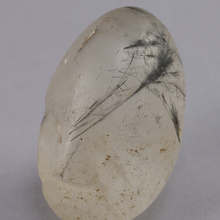
Figure
MOA: University of British Columbia
3157/153
Small opaque rutilated crystal head. The head is oval-shaped, with a large forehead. The eyes and nose are subtly formed. The head has broken at the base of the neck. Fragment of a larger object.
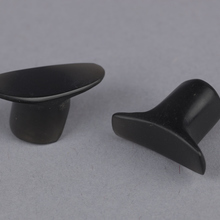
Labret
MOA: University of British Columbia
3157/152
Two obsidian labrets or lip plugs. Both have a tubular centres with a slightly curved end piece. One has a solid tube (a) , and the other is hollow (b).
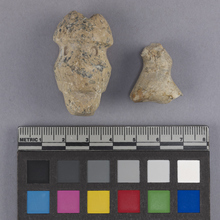
Figure
MOA: University of British Columbia
3157/149 a-b
Two fragments from a small stone figure. The head (a), has two drilled eyes, and a large open mouth. The top of the head has suffered some loss, and the head has broken off of the rest of the figure at the neck. The smaller fragment (b), is a sculpted section with a pronged bend, and two breaks. ...
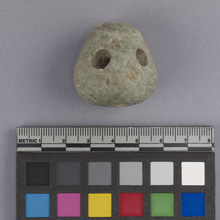
Net Weight
MOA: University of British Columbia
3157/147
Triangular-shaped stone net weight. On the top face, there are two holes drilled in slightly at an angle to connect. There is a drill mark on one end. On the reverse side, there is a hole partially drilled with four carved lines extending from it.
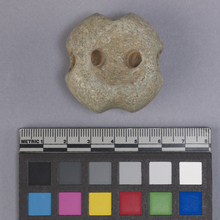
Net Weight
MOA: University of British Columbia
3157/146
Small stone net weight. The stone is smoothed, with four equally spaced indents around the side giving it a cross-like appearance. The top is a concave bowl. There are two holes drilled through in a line across the weight. There is a rectangular adhesive mark on the base of the weight.
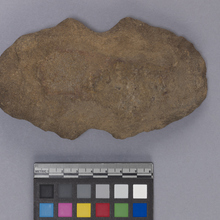
Axe
MOA: University of British Columbia
3157/145
Oval-shaped stone axe head. The stone is thicker in the centre with sharper worked edges. The centre has notches on each side. Circular sticker on one side.
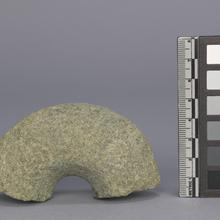
Fragment
MOA: University of British Columbia
3157/144
Half of a greenish-grey stone ring. The stone's surface is rough.
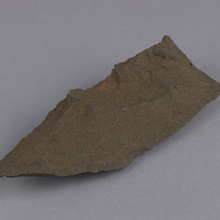
Axe
MOA: University of British Columbia
3157/142
Triangular-shaped stone axe. On one side, it is a long continuous sharp edge.